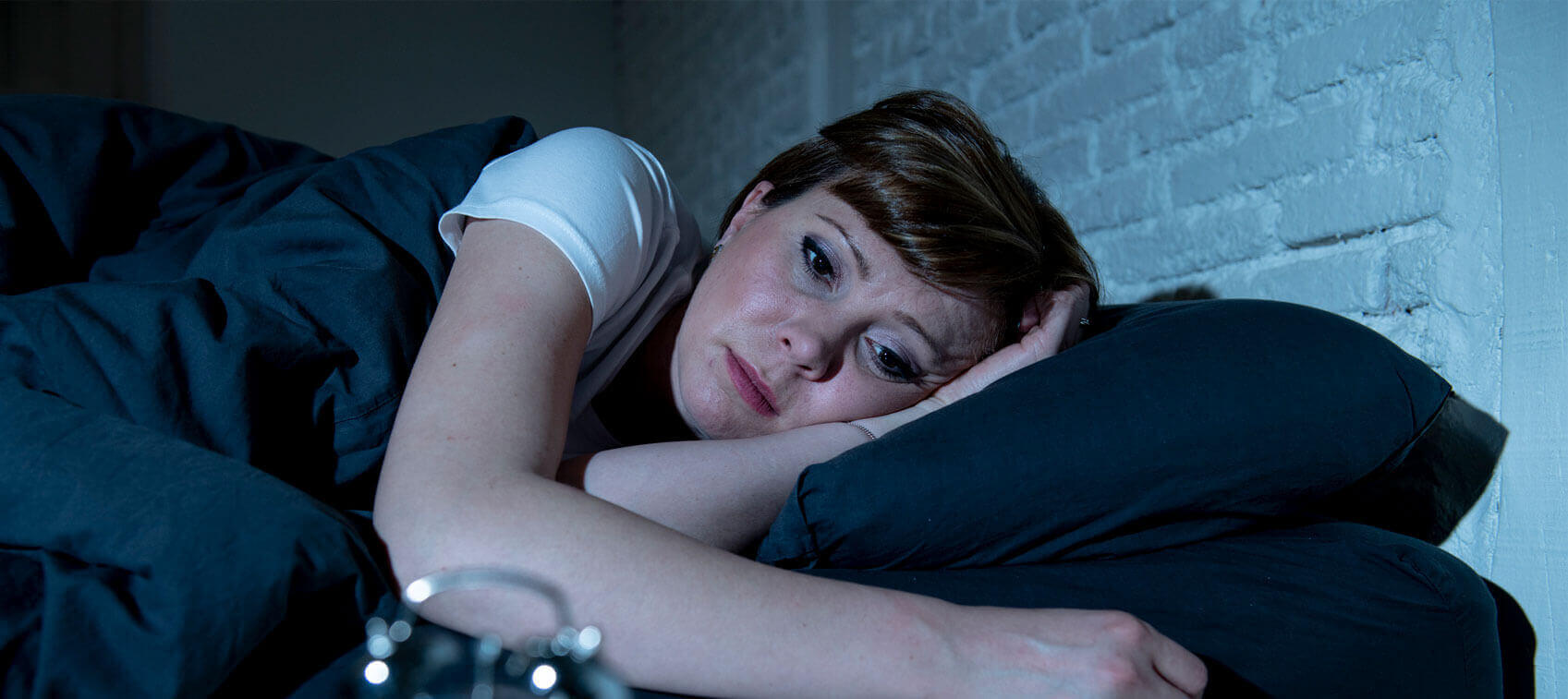
You go to bed at your usual time, turn off the lights, and then they start—those unbidden apprehensions about work, family, relationships, finances, medical problems, the state of the world....
You lie there willing yourself to sleep, looking at the clock periodically and thinking about how tired you’re going to be in the morning. Or you fall asleep easily but wake up in the middle of the night plagued by intrusive thoughts and fretting about your inability to get back to sleep.
If you’re lucky, this only happens once in a great while. But poor sleep is a recurring problem for a third of adults and a majority of older people—and it takes a toll on your health.
Can Insomnia Cause Anxiety?
Sleepless nights are often attributed to anxiety-induced insomnia. Anxiety triggers the stress response, which signals the release of cortisol and other stress hormones that put us in a hyper-alert state and make sleep elusive.
But anxiety and insomnia are a two-way street. Insomnia can also cause anxiety. Researchers from the University of California, Berkeley published a study in 2019, aptly titled “Overanxious and Underslept,” showing that a night of poor sleep increased anxiety levels by up to 30 percent.
These researchers also reported that a good night’s sleep calms the brain and stabilizes emotions. They found that deep, slow-wave stages of non-rapid eye movement sleep had an “anxiolytic” (anxiety-reducing) effect on areas of the brain that regulate emotions. In other words, sleep is a natural, drug-free remedy for reducing anxiety.
Help for Insomnia & Anxiety
As you can see, anxiety and insomnia are closely intertwined, and identifying and treating underlying problems that contribute to both can often help.
Insomnia and anxiety triggers can include:
- Hormonal imbalances: Hormones have a significant effect on mood, and imbalances in cortisol, thyroid, estrogen, progesterone, and other hormones are linked with anxiety and insomnia.
- Medications: Decongestants, ADHD and asthma drugs, corticosteroids, and other medications list anxiety and insomnia as side effects.
- Food sensitivities: Gluten, for example, can cause anxiety as well as depression and brain fog in sensitive individuals.
- Heavy metal toxicity: Overload of mercury, lead, and other heavy metals are linked with serious mental and emotional problems.
- Sleep apnea: Even if you get seven to eight hours per night, sleep apnea—which affects as many as 22 million Americans—seriously disrupts quality of sleep.
- Medical conditions: Chronic pain and untreated illness can make anyone anxious and sleepless.
Working with an understanding doctor and getting a handle on these issues may be your ticket to better health. For example, normalizing levels of estrogen, progesterone, thyroid, and adrenal hormones with bioidentical hormones often has lasting positive effects on mood and sleep.
Natural Remedies for Insomnia & Anxiety
Meditation, yoga, acupuncture, and relaxation/breathing practices are time-honored remedies for insomnia and anxiety. Exercise facilitates sleep and increases levels of GABA, which calms brain activity. A predictable bedtime routine, which may include a cup of relaxing chamomile tea, is also helpful.
In addition, I recommend going on a media diet. Constant exposure to the graphic details of murders, terrorist attacks, natural disasters, and government shenanigans can keep anyone awake at night. I’m not suggesting that you should bury your head in the sand, but you don’t need to wallow in all that misery.
A number of nutritional supplements also have proven benefits for insomnia and anxiety.
- PharmaGABA: a well-absorbed form of GABA, an amino acid that acts as the brain’s primary calming neurotransmitter, 100 mg 1–3 times a day as needed.
- L-theanine: a calming amino acid abundant in green tea that promotes GABA activity, 200 mg 2–3 times a day.
- Magnesium: a mineral that relaxes the muscles and mind, 200–400 mg at bedtime.
- Adaptogenic herbs: a number of adaptogenic herbs modulate the ill effects of stress (ashwagandha is also good for sleep), use as directed.
- DHEA: a hormone that blunts the adverse actions of cortisol, 25 mg for women, 50 mg for men per day
- Melatonin: the “hormone of sleep” and best-studied natural sleep aid, 1–6 mg at bedtime.
- Valerian: a traditional herbal remedy for insomnia and anxiety, 300–600 mg at bedtime.
- Cannabidiol (CBD): a compound in hemp that helps with both anxiety and insomnia, use as directed.
Problems with Sleeping & Anti-Anxiety Pills
I’ll close with a few comments on conventional insomnia and anxiety treatments.
Cognitive behavioral therapy is a proven method for relieving anxiety and anxiety-induced insomnia. It helps you understand and change negative thoughts and modify behaviors in anxious situations. Unfortunately, it often plays second fiddle to medications.
Popping a pill to help you sleep or curb anxiety may seem like an easy fix, but insomnia and anxiety medications aren’t the answer.
- Popular sleeping pills (Ambien, Lunesta, Sonata) can cause next-day drowsiness, decreased alertness, and driving impairment. They also carry a risk of rebound insomnia, dependency, and parasomnias—weird and sometimes risky behaviors such as eating, texting, having sex, or driving that occur during sleep and are not remembered the following day.
- Benzodiazepines (Restoril, Halcion, Valium, Xanax) are prescribed for anxiety and, less often, for insomnia. Benzos are notorious for their adverse effects. In addition to daytime grogginess, poor concentration, increased risk of falls and accidents, and rebound insomnia, they are highly addictive.
- SSRI antidepressants are the most widely prescribed drugs for anxiety. However, their effectiveness is overestimated—in some studies, they worked no better than placebos. Furthermore, these drugs have a boatload of side effects.
- Over-the-counter sleep aids like Sominex and ZzzQuil contain an antihistamine. They too can cause daytime drowsiness, and long-term use of these and other drugs with anticholinergic effects are linked with an increased risk of dementia.
Even if these medications were safe and effective, they’re a temporary solution, approved only for short-term use. Yet all too often they’re taken for months, even years—and that’s when you really run into problems.


